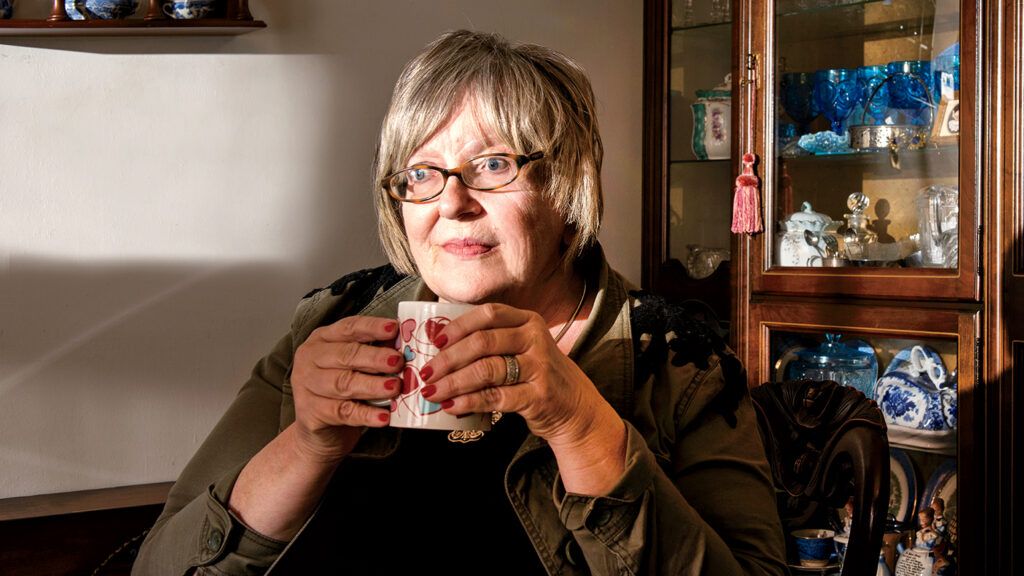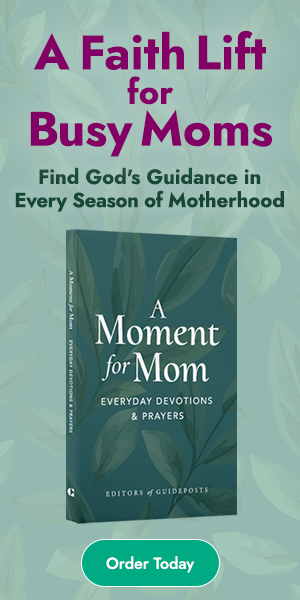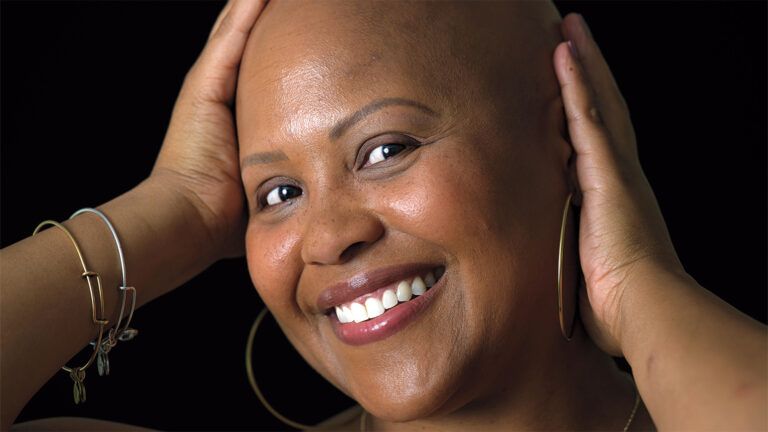I sat beside my mother’s hospital bed. She lay dying of cancer.
I didn’t know whether she could hear me, but I spoke anyway. “Mother, whatever hard words I said to you in the past, I want you to know I didn’t mean them. I have been so blessed to be loved by you, and I will be okay if you go home to Jesus.”
Mother’s eyes opened, and she reached out and squeezed my hand. With great effort, she said, “When I get to heaven, Roberta, I’m going to have me a little talk with God about your pain.”
She looked directly at me. “Believe, Honey. In his perfect time, it will all go away.” Her eyes closed, and moments later Mother slipped into a coma. She never woke.
Oh, how I wished I could believe her last words! She had said similar things so many times before.
I had been in continuous pain since childhood, and no prayer of Mother’s had ever seemed to make a difference. Besides, how could I believe that message coming from her when she was the cause of my pain and disfigurement?
For more than four decades, I had suffered from neurofibromatosis, once called Elephant Man’s disease. The condition caused unstoppable tumors to grow all over my body, particularly inside my head and around my face.
It’s a genetic disease; carriers of the gene don’t always show significant symptoms. Mother carried that gene and passed it on to me. Somewhere deep down in my soul, I had never forgiven her for that.
The day she and I learned of her cursed genetic trait still felt like yesterday. It was the Friday before Mother’s Day. I was 13 years old. We were in a doctor’s office, following up after the first of what would turn out to be a lifetime of surgeries to remove tumors from my body.
The disease often lies mostly dormant until adolescent hormones send the tumors into overdrive. In a few short years, I’d become a horror to myself, taunted by schoolmates and stared at even by adults.
The doctor came into the exam room and turned to Mother. “Almeda, we tested that growth on your scalp to see whether there’s a link to Roberta’s condition. The growth tested positive for neurofibromatosis.”
Mother never cried—she was a stoic mountain mama—but this time I saw a single tear run down her face and onto the collar of her Peter Pan blouse. “Are you saying I gave this illness to Roberta?” she said. The doctor nodded and put a sympathetic hand on her arm.
In the ladies’ room with Mother after the appointment, I remembered the seizure I’d had not long before at a school dance, which had been caused by tumors pressing against my brain. I’d come to on the floor, surrounded by jeering, pointing kids.
“Look at me!” I snarled at her reflection in the bathroom mirror. “Look at what you caused!”
Mother stared back at me, horrified.
“I hate you!” I screamed.
The instant those words left my mouth, I wanted to take them back. My mother was the toughest, smartest, most nurturing and faith-filled mother you could imagine. She loved me fiercely and showed it every day in ways large and small.
I loved her too. Just a few days before that doctor’s appointment, I’d finished sewing a Mother’s Day dress made of robin’s-egg blue linen embroidered with yellow daisies. I’d saved my babysitting money to buy the materials. I couldn’t wait to watch Mother open the gift.
But that outburst in the ladies’ room showed the darker feelings lurking in our relationship. Even before finding out about our genetic link, I often took out my emotional distress on her.
Sometimes I lashed out when she tried to comfort me. Other times I resented her unflagging hope and her insistence that I learn to live an independent life.
“You don’t understand how I feel!” I’d say accusingly. “You’re heartless!”
Mother never took my hurtful words personally—or at least she never let on that she did. She was overjoyed by that blue linen dress and took to calling it her sacred threads.
Mostly we got along, especially as I grew up and, with her determined encouragement, graduated from college and embarked on a long and fulfilling career as a hospital nurse.
Still, whenever the challenge of pain, disfigurement and repeated surgeries became unbearable, that shadow side of me would reemerge and I’d lash out at Mother again.
“Everything okay?” she asked one day when I took an especially long time getting dressed—I’d been struggling to pull on a pair of designer jeans.
“Well, I don’t exactly have designer genes,” I sneered. The color drained from her face.
Our church growing up was very strict. The God preached from that pulpit was a stern, all-knowing Father who brooked no dissent. It never occurred to me to take out my anger on God. That would be sinful!
Instead, I focused my blame on Mother. I blamed her for my pain. For the fact that, because of my many surgeries, I couldn’t have children of my own, even though having a family had been one of my most cherished childhood dreams.
It got to the point that, even when I had positive news to share about my condition, Mother preferred to avoid the topic altogether.
Once, I was invited to speak at a neurofibromatosis conference. I came home brimming with information about the genetic origin of the disease. I was eager to share what I’d learned with Mother, but she abruptly changed the subject the minute I started talking.
Another time, out of nowhere, she suddenly said to me, “I’m the reason you suffer.”
I tried to reassure her. “I admit I’m angry, Mother, but not at you. You didn’t do anything wrong.” She nodded, but I knew she still felt guilty. And despite my words, I did harbor a lot of bottled-up anger. The breach between us never quite closed.
After Mother died, I had no doubt she would have that frank talk with God about my pain. I had no confidence, however, that God would do anything about it. He’d had plenty of time already.
As I anticipated, my pain continued. My doctors had put me on an opioid pain reliever, which I ended up taking for more than two decades. The drug dulled my pain. It also made me physically dependent and submerged me in a state of low-grade depression.
One morning, almost 20 years after Mother died, I awoke to a startling vision. Right before me, as if physically present, I saw her sitting in a wooden porch swing in front of an old farmhouse in the West Virginia hills. She wore that blue linen dress I’d sewn all those years ago. Hands resting on her worn Bible, she looked young and carefree, as if she’d never grown old, never struggled.
“My dear Roberta,” she said, looking directly at me. “Read Joel 2:25. And believe!” She smiled at me radiantly and then was gone.
Coming fully awake, I fumbled for my Bible on the bedside table. Finding the Book of Joel, I turned to chapter two, verse 25: “And I will restore to you the years that the locusts have eaten.”
What exactly did that mean?
I found out a few weeks later. My primary care doctor told me that a change in my insurance meant I had to stop taking the opioid pain reliever. I was referred to a pain management specialist, who told me I should never have been on that medication for so long. “There are newer, more effective treatments for your condition,” he said.
I was prescribed a drug targeted for nerve pain, but before I could take it I had to withdraw from the opioid. The withdrawal was a nightmare. When I emerged from the agony, I was stunned to discover that the pain I had wrestled with for almost my entire life was suddenly and miraculously gone. I was free.
My pain management doctor explained that my miracle had a scientific basis. Neural pathways exert a powerful influence over how pain is perceived. For much of my life, I had been told my condition was unavoidably painful—my brain would predict pain, and so I was acutely sensitive to it. The opioid, it turned out, had only amplified that effect.
Somehow the shock of withdrawal had forced my brain to reassess its interpretation of pain. Free of the opioid, given a shot of hope by the pain management specialist’s confidence that I didn’t need the medication, my perceptions changed and I was able to refocus my thoughts away from a constant worry about pain.
It has been two years since that miraculous healing. Since then I have not taken so much as a Tylenol.
My healing, though, runs deeper than that. Mother gave me powerful prophetic words when she appeared at my bedside. She also made sure I saw her wearing that blue linen dress. Her sacred threads.
The message was unmistakable. Mother took that dress with her when she went to be with God. She loved me that much. In the light of that love, I went back over everything I once found so hard to bear—Mother’s relentless encouragement, her attempts to comfort me, her awkwardness when I tried to apologize.
All of it showed how deeply she cared about me. Loved me. How hard my condition was for her. I’m sure she punished herself for the genetic link more than I ever could, even as a misguided teen.
God has healed my pain. He has healed my heart too, in the deepest way imaginable.
For more inspiring stories, subscribe to Guideposts magazine.






